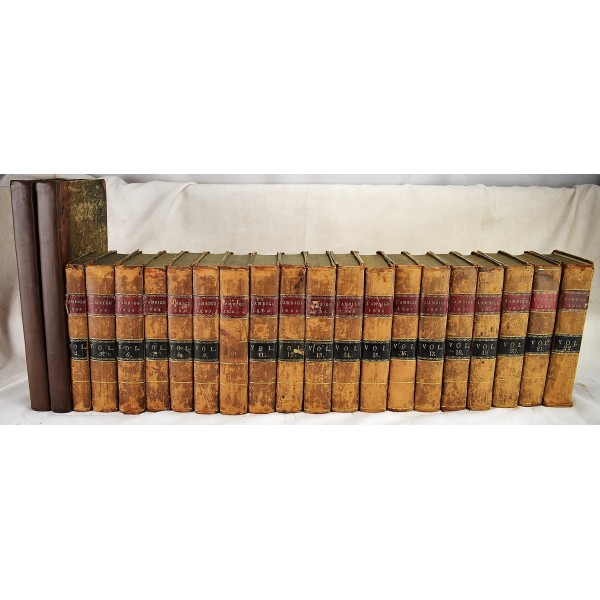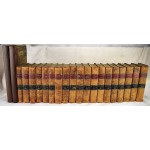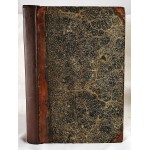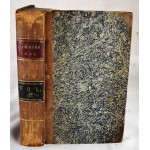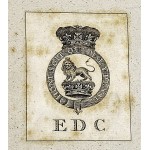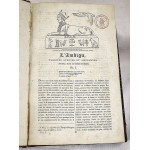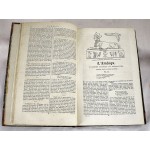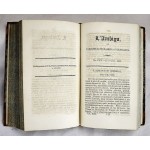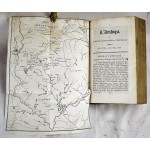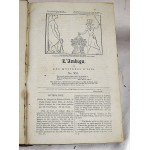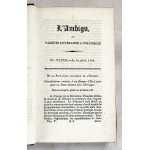L'Ambigu, Varietes Atroces et Amusantes, Journal dans le Genre Egyptien (21 volume set)
L'Ambigu, Varietes Atroces et Amusantes, Journal dans le Genre Egyptien (21 volume set)
Jean-Gabriel Peltier; Ernst August von Hannover
Londres : Imp. de Cox, fils, et Baylis, 1802
[Anti-Bonapartism: Counter-revolution Against the French Empire: A Work of Political Defamation, owned by the last English King of Hanover] 21 volume set. (1-2, 4-22 vols) Bound in contemporary leather-backed, marbled boards. Burgundy and black leather spine labels. Gilt ruled. Minor foxing. (1802)-1808. The first 2 volumes in folio, the final 19 in octavo. Vols 1 & 2 rebacked with modern leather.
The author, Jean-Gabriel Peltier, was the son of a wealthy French merchant. He became a pamphleteer, journalist and bookseller. Initially attracted to the ideals of French Revolution, Peltier turned against the Revolutionary cause after experiencing its excesses and savagery. Peltier was forced to flee to Britain in 1792 to avoid imprisonment (and probable execution). From exile in Britain he wrote a serious of polemics against the Republic and subsequently Napoleon. This work, "L'Ambigu" was his most famous. Due to the libelous nature of Peltier's publication the earliest issues of L'Ambigu are undated. Tim Clayton claims in "The Secret War Against Napoleon" that the journal "was deliberately enigmatic. Even the title is difficult to translate - perhaps less 'The Ambiguous' than 'The Ambiguous One', because the headpiece was a portrait of Bonaparte as a sphinx... Apart from various oblique recommendations that Bonaparte should be assassinated, the first volume contained a stream of quite amusing mockery of his style, his taste for Ossian, his fear of conspiracies, his short stature, his legion d'honneur, his public building programme, all calculated to irritate. On August an angry article, thought to have been written by Napoleon, was published in the Moniteur: "The Times, which is said the under ministerial supervision, is constantly spreading invective against France. Every day two out of its four pages employed to give credit to base calumnies. Everything that imagination can paint that is low, vile and wicked, this miserable organ attributes to the French government. What is its aim? Who pays for this? Who is it meant to convince? A French journal edited by some miserable emigres, the most impure residue, vile scum, without homeland, without honour, soiled by so many crimes that no amnesty can wash them away, goes even further than the Times." Napoleon's diplomatic complaint against Peltier was accepted by the British government during the lull in the Anglo-French conflict established by the Treaty of Amiens. As a result in Feb. 1803, Peltier was fined for insults and contempt after a trial held in Westminster. The judgment not was not executed, but Peltier's property in France was confiscated.
Hatin, pages 311-313.
Interesting Provenance: Armorial bookplate of the Duke of Cumberland "EDC" and royal motto of England "Honi soit qui mal y pense." Ernest Augustus 3rd Duke of Cumberland (1771 - 1851), was the 5th son of George III & King of Hanover. Ernest served in the House of Lords as an arch-conservative and fought with British forces near Tournai against Revolutionary France. He later fought against Napoleon and was eventually promoted to Field Marshall. He had the possibility of inheriting the English throne, but the birth of his niece (Queen Victoria) ended this prospect. (Ernst August von Hannover).
This is an oversized and heavy set, which requires additional postage for international delivery outside the US.
